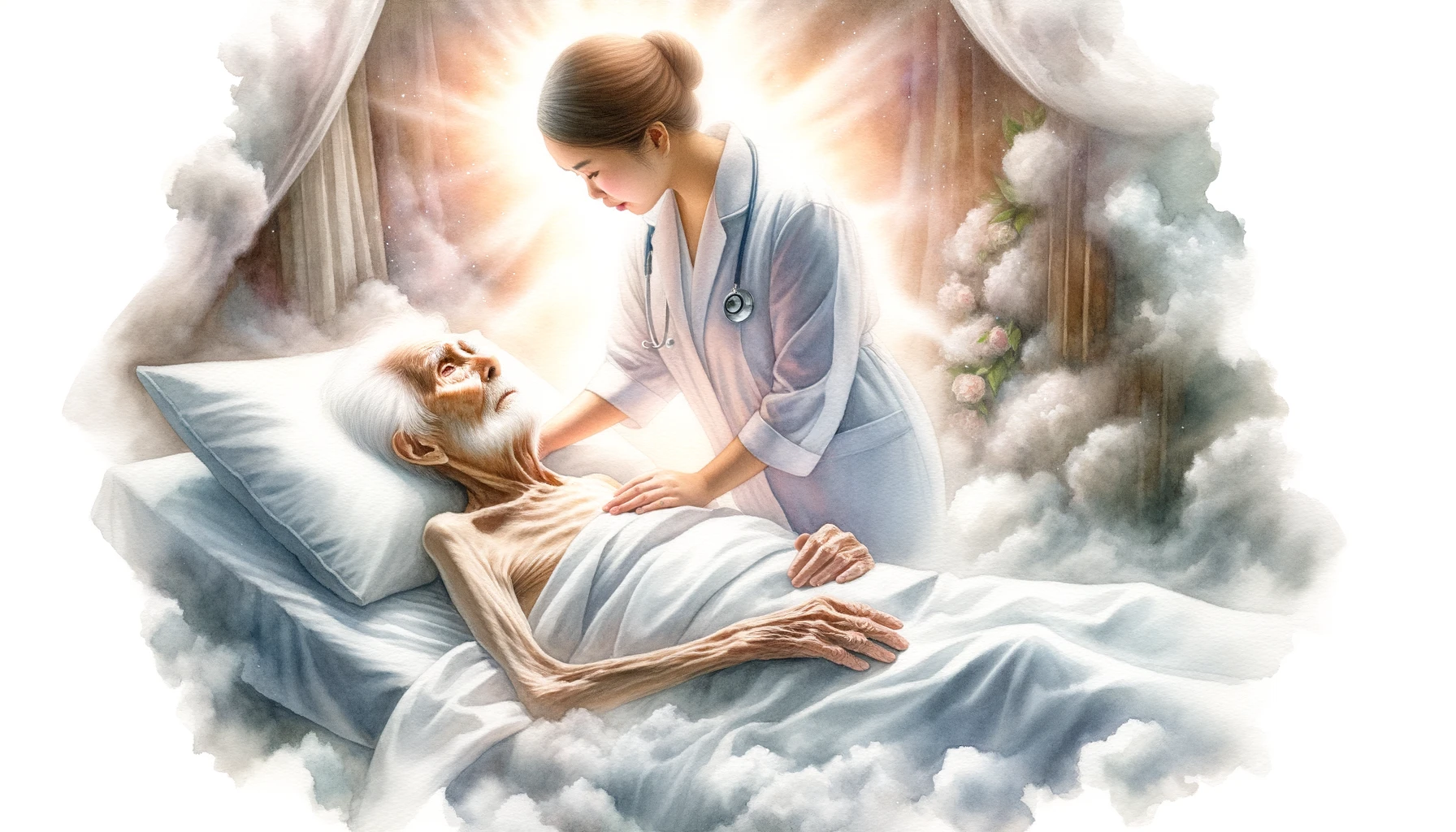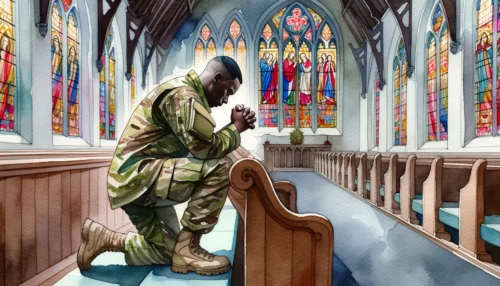As we grapple with the complex issue of euthanasia, it’s important to understand how the principles of Christianity shape our perspective. We’ll explore the sanctity of life as bestowed by God, His sovereignty over life and death, and the role of suffering in the Christian journey. This exploration is neither a blanket condemnation nor a full endorsement of euthanasia, but rather an attempt to apply biblical principles to a difficult modern ethical dilemma.
Understanding Euthanasia: Its Context and Implications
Euthanasia is a term that stirs deep emotion and controversy. It derives from the Greek words ‘eu’ meaning ‘good’ and ‘thanatos’ meaning ‘death’, and in its broadest sense, it refers to the practice of intentionally ending a life to relieve pain and suffering. Euthanasia can be voluntary, where a person with a terminal illness makes an informed decision to end their life, often because they are suffering unbearably. It can also be involuntary or non-voluntary, where the person is unable to give their consent, as in the case of coma or severe mental disability.
Christianity’s stance on euthanasia is shaped by several key biblical principles. These principles aren’t confined to a single verse but rather permeate the entirety of scripture. The first of these principles is the sanctity of life, which is repeatedly emphasized throughout the Bible (Genesis 1:26-27; Psalm 139:13-16). Human life, being created in God’s image, is considered sacred and inviolable, a gift to be valued and respected.
The second principle is God’s sovereignty over life and death. The Bible frequently attributes the control of life and death to God (Deuteronomy 32:39; Job 1:21). In other words, only God, as the creator of life, has the authority to end it. This perspective inherently challenges the idea of euthanasia, which involves human intervention to end life.
The third principle is the Christian understanding of suffering. The Bible doesn’t shy away from the reality of suffering but rather presents it as a part of the human experience, often associated with spiritual growth and development (Romans 5:3-5; James 1:2-4). This perspective contrasts with the prevailing societal view of suffering as something to be avoided at all costs, which is often a driving force behind calls for euthanasia.
This overview gives us a snapshot of the context of euthanasia and the biblical principles that inform the Christian perspective. The sanctity of life, God’s sovereignty over life and death, and the Christian understanding of suffering are key biblical principles that shape the Christian perspective on euthanasia. These principles provide a lens through which we can view and evaluate the ethical dilemma of euthanasia.
The Sanctity of Life: A Cornerstone of Christian Belief
Life, in all its stages and forms, holds an intrinsic value and sacredness in Christianity. This belief stems from the biblical concept that human beings are created in the image of God (Genesis 1:26-27). This understanding moves beyond physical likeness; it implies that every human life possesses a unique, divine worth that demands respect and protection.
An immediate implication of this belief is the Christian conviction that each life, regardless of its stage or condition, should be preserved and respected. This implies a respect for life even when it is weak, vulnerable, or burdened by illness. This principle is seen in the actions of Jesus, who showed compassion and healing to the sick, the weak, and the marginalized, affirming their value and worth (Matthew 25:34-40).
God’s commandment “You shall not murder” (Exodus 20:13) further reinforces this sanctity of life. This commandment has traditionally been understood to prohibit not just acts of violence, but any action that intentionally ends a human life.
The idea of the sanctity of life can lead to a challenging question in the context of euthanasia. If life is indeed sacred and a gift from God, can we ever justify the act of intentionally ending it, even if the aim is to alleviate suffering?
This question is not easily answered, but it’s clear that the principle of life’s sanctity is a foundational element in Christian ethical thinking. It encourages us to value all life, even in its most vulnerable stages. The sanctity of life, as a cornerstone of Christian belief, informs our understanding of euthanasia, pushing us to question whether it aligns with the respect and reverence we are called to show towards all life.
God’s Sovereignty Over Life and Death
A central tenet of Christian belief is the sovereignty of God, which extends over all aspects of existence, including life and death. This belief shapes the Christian understanding of the natural order and the limits of human action.
According to the Bible, God is the author and sustainer of all life. It affirms that God gives life and takes it away, having the ultimate authority over life and death (Job 1:21; Deuteronomy 32:39). This belief places the control over life’s beginning and end firmly in the hands of God, beyond human jurisdiction.
This idea of divine sovereignty over life and death, combined with the sanctity of life, presents a clear challenge to euthanasia. If God alone holds the authority over life and death, can humans rightfully assume this authority and make decisions about when life should end?
This question is particularly pertinent in cases of euthanasia, where the decision to end life is often based on a desire to alleviate suffering. Yet, from a biblical perspective, it’s God who has the authority to determine the boundaries of human life, not the individual suffering, their families, or even their medical caregivers.
The sovereignty of God is not just about divine control, but it’s also a statement of divine care and providence. God is not a distant observer but a loving Father who sustains and cares for His creation, even in moments of pain and suffering (Matthew 10:29-31).
Understanding God’s sovereignty over life and death provides a critical perspective on euthanasia. It asserts that decisions about life and death rest in God’s hands, not ours. This belief challenges the premise of euthanasia, which gives humans the authority to determine when life should end.
Finding Hope in Divine Wisdom
The question of euthanasia is complex and deeply personal. It forces us to confront our beliefs about life, death, suffering, and the limits of human authority. From a biblical perspective, the sanctity of life, God’s sovereignty over life and death, and the Christian understanding of suffering all challenge the premise of euthanasia.
To delve deeper into your personal understanding of this issue, consider these questions:
- How does your belief in the sanctity of life influence your perspective on euthanasia?
- What does God’s sovereignty over life and death mean to you in the context of end-of-life decisions?
- How does the Christian understanding of suffering shape your thoughts about euthanasia?
Navigating difficult ethical questions such as euthanasia may not be easy, but it offers an opportunity for growth, discernment, and a deeper understanding of our faith. In the face of life’s most challenging moments, let’s find solace in the divine wisdom that guides us, the compassionate love that sustains us, and the eternal hope that anchors us.














